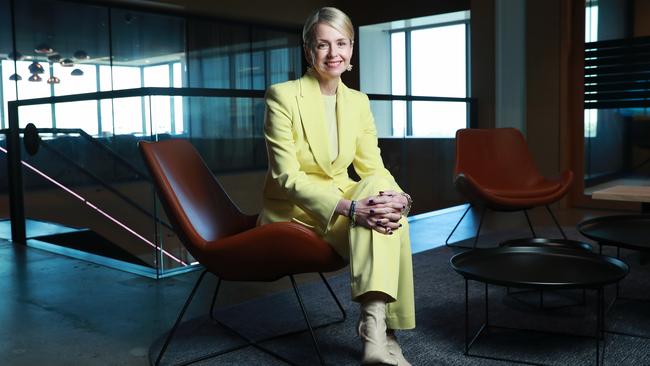Legal Partnership Survey: What constant change means for law firms after the Covid-19 crisis
Change is constant, law firm leaders agree. One managing partner reflects what that means in the post-pandemic crisis industry.

Increasing complexity, diversity and digitisation are the concurrent trends that have shaped the evolution of law firms since Virginia Briggs entered the profession 30 years ago.
“When I started, we had a telex machine and I didn’t have a computer on my desk,” MinterEllison’s chief executive and managing partner says.
The legal world was male-dominated, but the tide was beginning to turn.
These days, firms have targets for promoting women – although some are doing better than others at reaching the holy grail of a fairer proportion of women equity partners or equivalent.
Progress or lack of it at top tier firms such as MinterEllison tends to be more visible than for other firms. Briggs, who has been there since 2007, does not have that problem: All partners have equity although remuneration is scaled within that.
All partners have equal voting rights and responsibility as business owners which, for her, is a critical criteria. She, with other industry leaders, readily concedes there is more to be done in providing opportunities for women.
However, there is an urgent need to tackle inequality on other fronts, such as cultural background, gender and disability.
“We are focusing on this right now,” Briggs says.
Diversity had evolved beyond being a justice issue to being about doing business and upgrading the expertise on offer.
“It’s about diversity of thought to solve our clients’ most complex problems,” she says. “Something that has changed for ourselves and our clients is the complexity of business. It is now in a state of flux and that’s not going to stop, so we need to have people who are comfortable with complexity and ambiguity. That wasn’t the case when I first started.”
There was now a need for talented lawyers with degrees in other areas such as town planning, nursing or engineering, who could be experts in clients’ industries.
“They understand their needs, their industry and corporate language and culture,” Briggs says.
In infrastructure projects, for example, there was predicted exponential growth in demand and the accompanying need for a huge boost in the workforce at every level.
“Infrastructure projects are changing as are the risks. The needs of our clients are requiring as much brain power from our technology lawyers, IT and digital consultants as from our construction lawyers.”
In another growth sector, environmental, social and governance (ESG) risk, embedding compliance to emerging standards and existing regulations was an imperative, accompanied by “the need for management beyond legal risk, to reputational and financial risk”.
They blend into a complex set of issues and extend to the share price and shareholder value, and debt and equity funding.
“Companies are increasingly at risk of being locked out by funding suppliers because they are not properly addressing their ESG risks and concerns,” Briggs says.
Russia’s attack on Ukraine had opened up another frontier as firms adjusted to comply with sanctions.
“Each month in the world, there is something new in terms of ESG and regulatory requirements that organisations need to comply with,” she says.
Briggs says the social part of ESG is also applicable to providing mentally healthy workplaces and sustainable ways of working.
“One of the upsides of Covid is that we are more comfortable talking openly about mental health, but the downside is that, as a society generally, people are experiencing more mental health issues than usual,” she says.
This included the legal workforce where, once again, a commitment to diversity and inclusion was part of the answer, “so you can talk about mental health issues without shame and feel like you are supported”.
Another benefit from Covid was the forced recognition that “people have lives outside of work and are trying to bring some balance to how they meet all of their commitments as a whole person”.
“In video meetings, we got to see people’s children and dogs as they wandered into view, so people aren’t just seen as someone who produces as a document or appears in court,” Briggs says.
She predicts some changes to the pressures a high-performance environment such as law can bring.
“Some old practices were unsustainable, but we need to work with our clients to come up with solutions for that because it’s not something we can do alone as a profession,” Briggs says.
“In some areas, we are starting to move away from the billable six minutes – and I think it’s something we and our clients need to consider – but I don’t see that happening at any great rate just at the moment.”
Briggs says how all that will be influenced by digital disruption and transformation is as yet unclear, but it should improve the working lives of lawyers.
“We are already starting to see how machines can take away the boring, mundane administrative parts of the work we do.” It is a double win that frees lawyers to concentrate on creative solutions to knotty problems.
“I love that change. A lot more of the sorts of work we do will be commoditised, and organisations need to keep an eye out for that. We are going to live in a world of increasing regulation where companies cannot divide their issues into neat boxes. There’ll be knock-on effects to everything we do.
“We are a law firm at our core and always will be, but in order to address our clients’ most complex problems, we will need to have a diversity of skill sets and experience, including legal and consulting.,” she said.





To join the conversation, please log in. Don't have an account? Register
Join the conversation, you are commenting as Logout